Studying in New Zealand teaches foreign students independence
At a seminar held by Education New Zealand (ENZ), the New Zealand Embassy in Hanoi and the Hanoi Department of Education and Training (DoET) yesterday to share New Zealand’s expertise in preparing students for the future, Robbie Pickford, project manager of Schools International Education Business Association (SIEBA), shared that she has observed a great deal of curiosity among students in Vietnam, a trait which would be most welcome and encouraged in schools in New Zealand as teachers there love it when students ask questions and are happy to satisfy their interest.
The New Zealand education system, backed by the government with plentiful resources, according to Pickford, will provide international students like those from Vietnam with facilities to pursue both in-class study and outdoor activities to fully nurture their mental and physical states.
“New Zealand schools are incredibly lucky in the way they are funded by our government with the resources we have: beautiful grounds so the students do get the opportunity to spend time outdoors doing sports, but also in our classrooms, students don’t have to buy textbooks, as we don’t use a lot of textbooks anymore, we use a variety of ways to teach our students. We are very privileged that the government supports us incredibly well,” she said in an interview in Hanoi.
“I think education methods in New Zealand are quite different from those in most countries. We focus on teaching our students to be ready for the future. A key tenet is to teach students skills rather than just knowledge. We want them to achieve knowledge, but we want them to understand the material and know what to do with that knowledge and how to use it.”
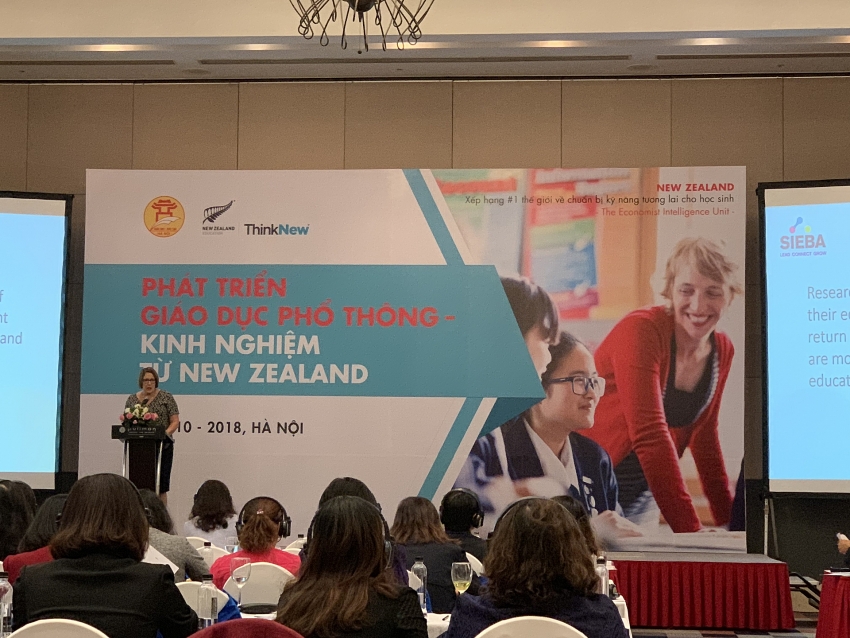 |
| Studying in New Zealand teaches students independence |
While there are quite a number of international schools in Vietnam where local students can also get globally-recognised qualifications, it comes down to the experience of living in another place why many local parents and students choose New Zealand as a place to study. According to Pickford, living with a host family and studying in New Zealand can be the best way for Vietnamese students to learn the language.
Another great advantage of studying abroad is that students learn to be independent.
Given the six-hour time difference between New Zealand and Vietnam, calling home to ask their parents for advice can be difficult, which prompts students to solve their problem themselves, according to Pickford.
“They enjoy the day-to-day life in New Zealand. All of their experiences in another country is part of their learning, each new memory a step towards independence. When they’re in New Zealand, they’re learning a huge number of skills, independence and self-management being only two of them.”
According to Economist Intelligent Unit, the rapid development of digital technology and the globalisation of economic systems are creating an entirely new set of educational challenges for the world. The workers of the future will need to master a suite of interpersonal, problem-solving, and critical-thinking skills and navigate an increasingly digital and automated world.
For developing countries like Vietnam, where the young (from 10 to 24) account for approximately 40 per cent of the population, the need to prepare a workforce for the future starting from secondary school onwards is even more pressing.
New Zealand Ambassador to Vietnam Wendy Matthews shared that the seminar is another important step to promote the long-term commitment between the New Zealand government and Hanoi DoET: “We are thrilled that Vietnamese families and students are increasingly choosing to study in New Zealand, with 36 per cent more Vietnamese school students and 14 per cent more university students enrolling in New Zealand institutions over the past year.”
“Conducting this seminar for the first time alongside DoET allowed us to share more about New Zealand’s future-focused approach to education, which promotes inquisitive and project-based learning and provides flexible learning pathways for students. New Zealand is committed to the education partnership with Vietnam, to future-proofing Vietnamese students, and enabling Vietnamese students to pursue successful global careers.”
“More importantly, the seminar was a fantastic platform for both Education New Zealand and DoET to share best practices and to enable New Zealand to better understand ways in which it can support the development of 21st century skills in Vietnam,” said Ambassador Matthews.
In addition to the seminar, Education New Zealand will also organise roadshow activities at nine schools in Ho Chi Minh City and Hanoi to further promote New Zealand’s culture, people, and education system, and foster future exchanges between New Zealand and Vietnam’s education institutions.
What the stars mean:
★ Poor ★ ★ Promising ★★★ Good ★★★★ Very good ★★★★★ Exceptional
 Tag:
Tag:
Related Contents
Latest News
More News
- 14th National Party Congress wraps up with success (January 25, 2026 | 09:49)
- Congratulations from VFF Central Committee's int’l partners to 14th National Party Congress (January 25, 2026 | 09:46)
- List of newly-elected members of 14th Political Bureau announced (January 23, 2026 | 16:27)
- 14th Party Central Committee unanimously elects To Lam as General Secretary (January 23, 2026 | 16:22)
- List of members of 14th Party Central Committee announced (January 23, 2026 | 09:12)
- Highlights of fourth working day of 14th National Party Congress (January 23, 2026 | 09:06)
- Press provides timely, accurate coverage of 14th National Party Congress (January 22, 2026 | 09:49)
- Press release on second working day of 14th National Party Congress (January 22, 2026 | 09:19)
- Minister sets out key directions to promote intrinsic strength of Vietnamese culture (January 22, 2026 | 09:16)
- 14th National Party Congress: Renewed momentum for OVs to contribute to homeland (January 21, 2026 | 09:49)

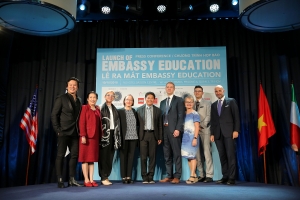
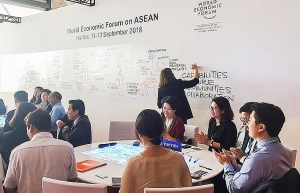
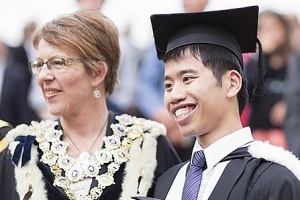
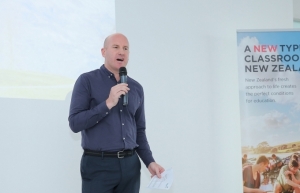





















 Mobile Version
Mobile Version